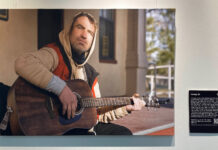As members of the academic community, students enjoy the privileges and share the obligations of the larger community of which the college is a part. With membership in this community comes an obligation, which is consistent with goals of personal and academic excellence. This obligation is an acceptance of a code of civilized behavior.
These are the guiding principles for students at Salt Lake Community College:
“I will practice personal and academic integrity. I will respect the dignity of all persons. I will respect the rights and property of others. I will discourage bigotry, striving to learn from differences in people, ideas and opinions. I will demonstrate concern for others, their feelings and their need for conditions, which support their work and development. Allegiance to these ideals obligates each student to refrain from and discourage behaviors which threaten the freedom and the respect all community members deserve.”
–The Carolinian Creed
The Student Code outlines the expectations of civil behavior at SLCC. It also provides information to help students in with grievances. Students are expected to adhere to the policy. If students have a complaint or grievance, they can contact the Dean of Students’ office 957-4776 for assistance. Inappropriate behavior may result in disciplinary action, which may result in a suspension from the college. All complaints follow the course of “due process” as outlined in the code. The Code is available at www.slcc.edu/conduct.
Grievances may be made by or against any member of the college community (staff, student or faculty). If the grievance is about a grade or an instructor, the Code requires that the academic department be notified and given a chance to resolve the problem first. For students with a disability, the college ADA Coordinator will be notified to assist them. Depending on the nature of the complaint, campus security may also become involved.
The college is committed to equitable, civil, and concerned treatment of all individuals regardless of age, gender, race, color, national origin, disabling conditions, religion, sexual orientation or veteran status.
It is imperative that students learn to recognize, understand and celebrate human differences. Colleges can, and indeed must, help their students become open to the differences that surround them: race, religion, age, gender, culture, sexual orientation, physical ability and nationality. These matters are learned best in settings that are rich with diversity, and they must be learned if the ideals of human worth and dignity are to be advanced.
Any expression of hatred or prejudice is inconsistent with the purposes of higher education in a free society. So long as intolerance exists in any form in the larger society, it will be an issue on college campuses. SLCC is committed to maintaining an environment free from prejudice. Student conduct regulations of SLCC are printed herein. These regulations pertain to all campuses, centers, sites and other locations where programs and activities of SLCC are conducted.






